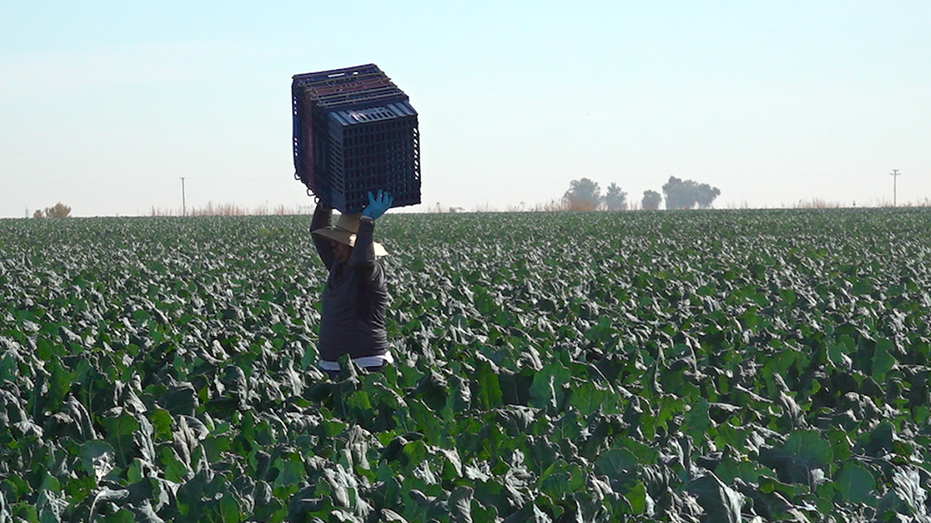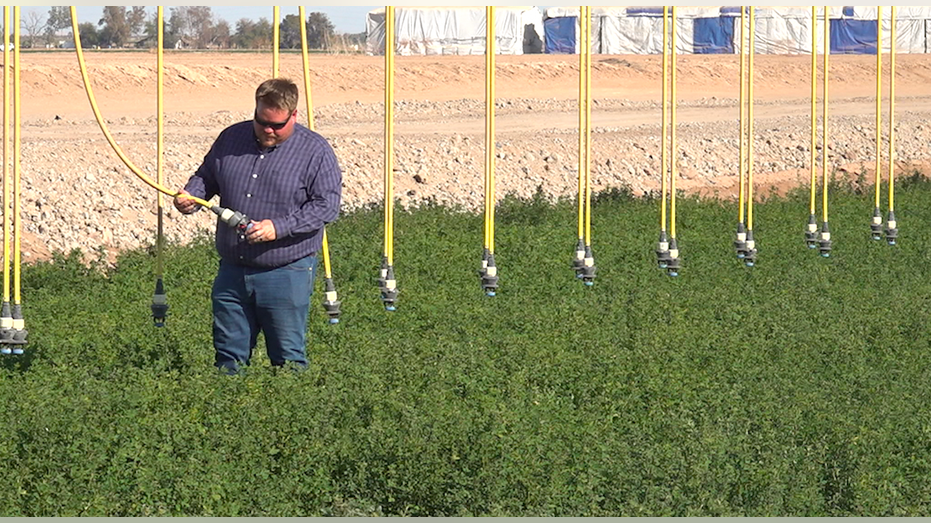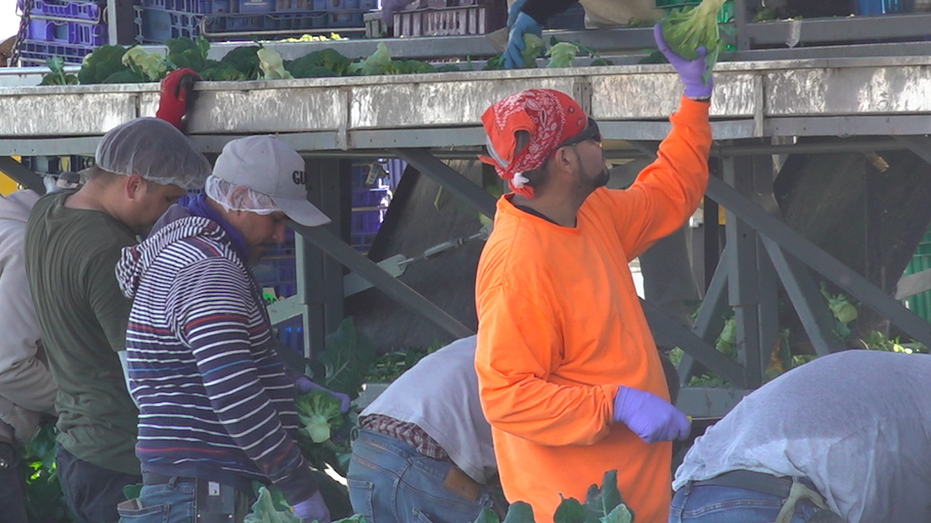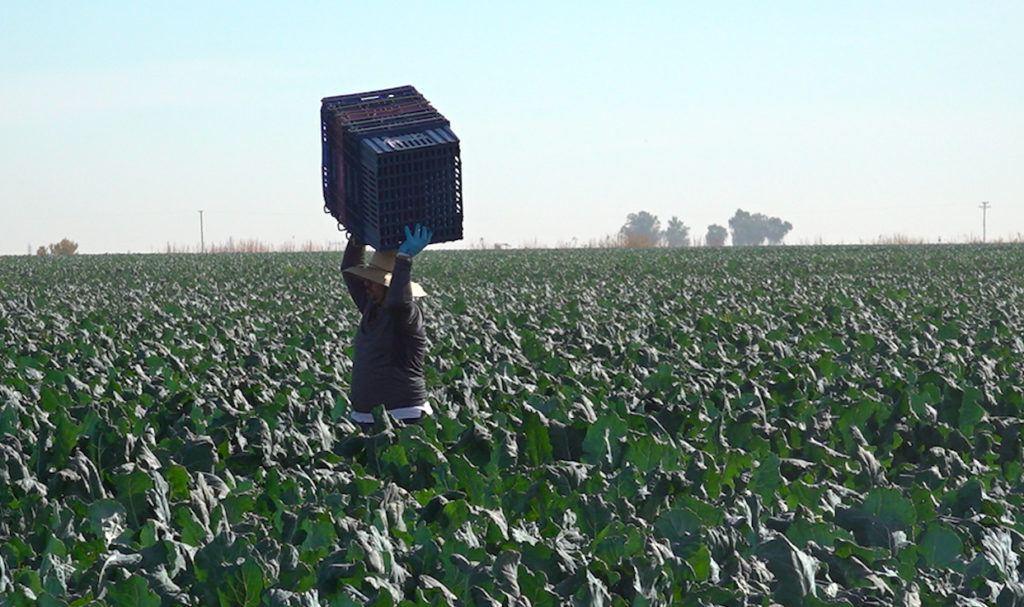The shelves and prices at your local grocery store may soon look a little different.
The shelves and prices at your local grocery store may soon look a little different. The Colorado River, which provides water for about 15 percent of our nation’s agriculture, is declining, and the current agreement that divides water use expires in 2026.
The Southern California’s Imperial Valley relies 100% on the Colorado River for water. This valley receives less than three inches of rain annually, but still produces about two-thirds of the country’s winter produce.

A farm worker carries boxes through a field of broccoli. (Sunny Tsai/FOXBusiness)
Valley farmers say shrinking water levels and competing interests over the use of the river will adversely affect the nation’s food supply.
“A lot of people say that the Colorado River and its dwindling water supply is a problem that affects 40 million people because they rely on it. I think that number is too small. I think 100 million people rely on Colorado water,” said fourth-generation farmer Andrew Leimgruber.
“When you’re between November and March, most of your lettuce, broccoli, carrots, all of your winter vegetables come from either the Imperial Valley or right across the Colorado River from us in Yuma, Arizona,” Laimgruber said.

Limegruber checks the sprinklers on his irrigation system. (Sunny Tsai/FOXBusiness)
The Colorado River is divided between seven states and Mexico. Farmers in the Imperial Valley are the largest users of the river’s water.
WATER SHORTAGE CUTS TEXAS CITY’S PROSPERITY
If the valley cannot produce enough crops, this can lead to long-term problems.
“So the big issue for us in California is our rising labor cost, but also the ability to withstand pest pressure and things like that. One problem with the lack of water is the lack of diversity in crops. Having this variety allows us to keep pests under control,” said Benson Farms manager, Stephen Benson.
US AGRICULTURE INDUSTRY BREAKS FOR FUTURISTIC AERIAL AGRICULTURE ‘DRONE SWARM’ AFTER FAA DECISION
Due to low water levels, some farmers in the valley are being paid not to grow certain crops or to use less water. However, this is not always enough.
“I can tell it doesn’t cover our expenses all the time. For example, if I’m going to install drip irrigation, I need to have $1,000 per acre. I don’t approach it as compensation. And that’s something that we need to study more because as we go forward, conservation just gets more expensive,” Benson said.

Farm workers cutting broccoli. (Sunny Tsai/FOXBusiness)
Imperial Irrigation District says it is working with farmers on various water conservation efforts to help with part of the problem.
“We’re providing additional funding so they can buy drip systems and sprinkler systems, tap water return systems, all kinds of new technology and precision laser field leveling that allows them to continue to farm the way they always have , but only using less water,” said Imperial Irrigation District Water Manager Tina Shields.
GET FOX BUSINESS ON THE GO BY CLICKING HERE
If the seven states and Mexico can’t reach an agreement on how to use Colorado River water by the 2026 deadline, the Bureau of Reclamation will step in and make the decisions.
2024-12-29 17:54:38
https://a57.foxnews.com/static.foxbusiness.com/foxbusiness.com/content/uploads/2024/12/0/0/screenshot-2024-12-26-at-5.12.04-pm.png?ve=1&tl=1

